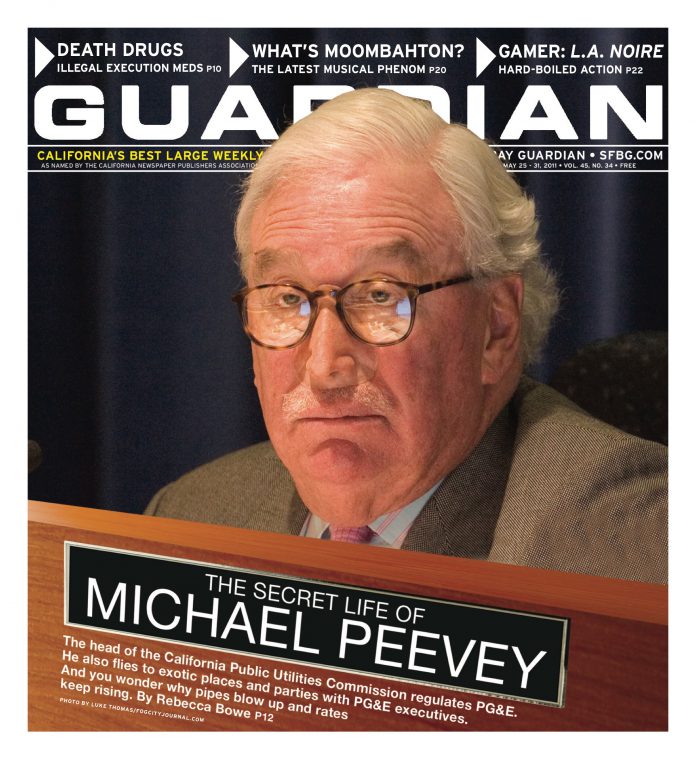For all the serious discussion sparked by the Grand Theft Auto series, Rockstar Games’ blockbuster is not the most serious bunch of games. Notoriously pop-culture obsessed, the company’s otherwise earnest game stories are peppered with movie references, goofy caricatures, and dick jokes. The separation between atmosphere and content became most difficult to overlook when the series joined the current console generation with Grand Theft Auto IV. The tale of an East-European immigrant’s moral struggle to survive in America, Grand Theft Auto IV toned down its signature over-the-top gameplay in a bid for game art, but Rockstar couldn’t resist undermining its characters’ newfound complexities with immature humor.
With LA Noire, Rockstar delivers a truly grown-up game. Constructed under Rockstar’s wing, LA Noire is the first game from development house Team Bondi, an Australian company started by Brendan McNamara of gritty English mob game The Getaway. In Team Bondi, Rockstar has found the perfect studio to indulge its aesthetic while reigning in its more puerile impulses. Taking cues from Raymond Chandler, James Cain, and LA Confidential, LA Noire stars conflicted war hero Cole Phelps, who joins the LAPD as a patrolman and quickly rises through the ranks by solving murders and other crimes in an authentic-looking 1940s Los Angeles. Tempting as it must have been to lampoon the genre, there is nary a Dead Men Don’t Wear Plaid (1982) reference to be found.
Gameplay follows a simple pattern over the course of its 20ish hours: investigate a crime scene, follow leads and track down suspects, interrogate and arrest. Rockstar has long led gaming’s evolution into “cinematic experiences,” and LA Noire is a stunning example of blockbuster presentation. It has created a studied facsimile of L.A.’s exalted era, developed a new motion-capture technology that allows realistic representation of faces (see sidebar), and devoted hours of game time to cinema-quality cut-scenes.
Taking further steps to ensure that its cinematic style remains front and center, Team Bondi built in options to remove investigation aids, allowed players to completely skip action and driving sequences, and — for real noir aficionados — added the option to play the whole game in black and white. Selecting these choices points players toward the story and, in turn, reveals which elements were likely neglected during the development process. In this case, the shootouts and the driving.
It might sound like a deal-breaker, but it’s not. Flaws in the conventional gameplay of combat and vehicles are most pronounced in the early-going, where cases are shorter and less memorable; without the context of an engaging mystery, the clunky mechanics are emphasized. Driving is stiff and offers little excitement beyond passing the time between investigations. Shoot-outs and fistfights often are over in less than a minute — not nearly enough time to get the blood pumping. But once you’ve passed the first couple of desks and hit homicide — where the cases are based loosely on real-life murders of the period and play off one another in interesting ways — it becomes clear that gunplay and fisticuffs aren’t LA Noire‘s intended focus but were simply concessions to tradition and buyer expectation.
Setting expectations aside, imagining LA Noire as the triumphant return to point-and-click adventure games becomes easy. Investigations task you with wandering around and clicking on things until you click the right thing that lets you move on. Hey, that sounds like Monkey Island! Conversations with suspects are like tiptoeing through a minefield. Action sequences are filled with second chances; playing human lie detector is a merciless activity, and failing severely weakens your case. These sequences are the real stars of the game.
LA Noire is unlikely to disappoint, unless you were expecting something that the game never was. There’s a sandbox, but it isn’t really a sandbox game; nor is it a variable detective simulation. LA Noire has a stand-alone story and is a guided experience. Many of the cases are worthy of novel-length expansion, which is about the highest compliment a game like this can get. More than anything, Rockstar and Team Bondi have created an impressive and consummate example of gaming’s recent cinematic obsession. Today’s games continue to be about making decisions and working toward goals, and about strategy and winning. But more and more, games have begun to reflect our lives, cultures, and histories. If that doesn’t make them art, I don’t know what can.
LA Noire
(Team Bondi/Rockstar Games), Xbox 360, PS3

